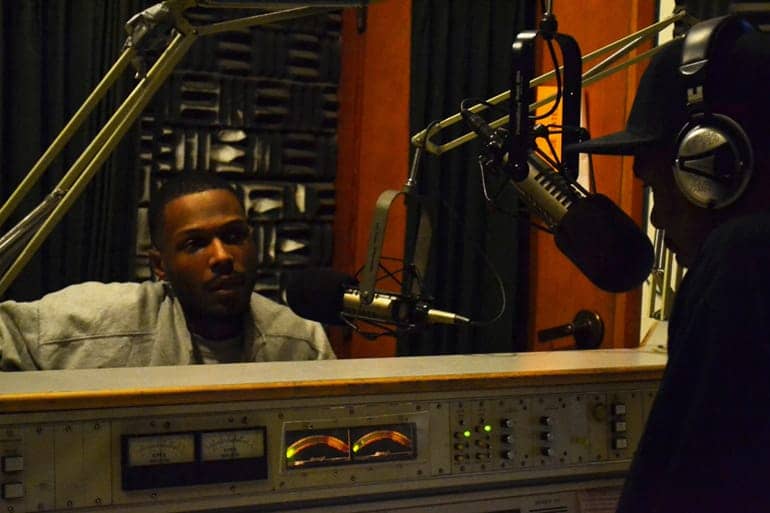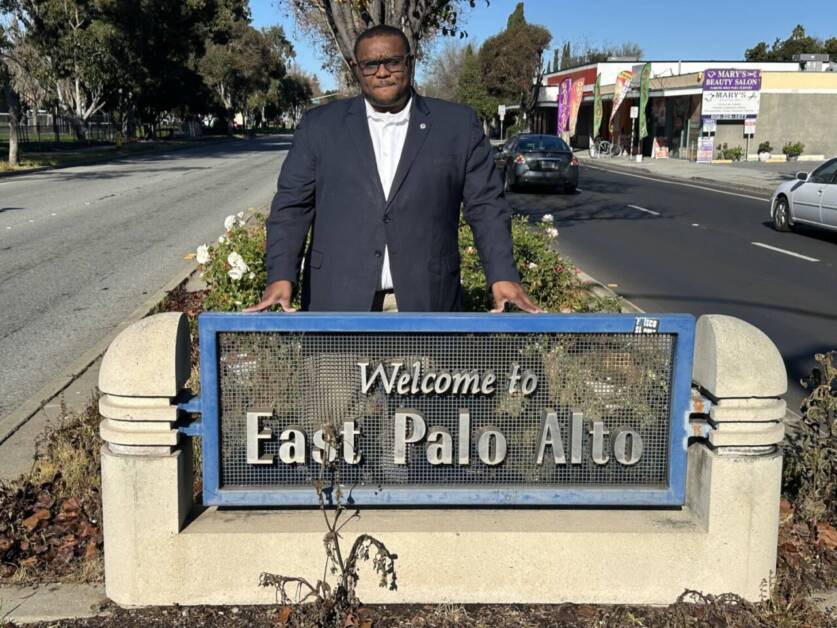by The People’s Minister of Information JR Valrey

She asked me if I was JR who wrote for the SF Bay View. I told her I was. She then proceeded to ask me if I would publish the letter. I told her it was an honor for me to assist her, as well as to help out one of the descendants of the late great El Hajj Malik El Shabazz, aka Malcolm X, whom I had learned so much from.
I immediately went back to the SF Bay View newspaper office and typed up the handwritten letter. It was published the next week. A few weeks later, I received a letter from Young Malcolm thanking me for publishing it.
After that we kept in contact for about three years. With the help of my comrade Rashida, we kept in touch on a pretty regular basis. Our correspondence really just dealt with life and getting to know each other; it did not consist of political rhetoric or even future plans. Correspondence fell off after Young Malcolm was transferred or released. I did not hear again from him until July of 2010.
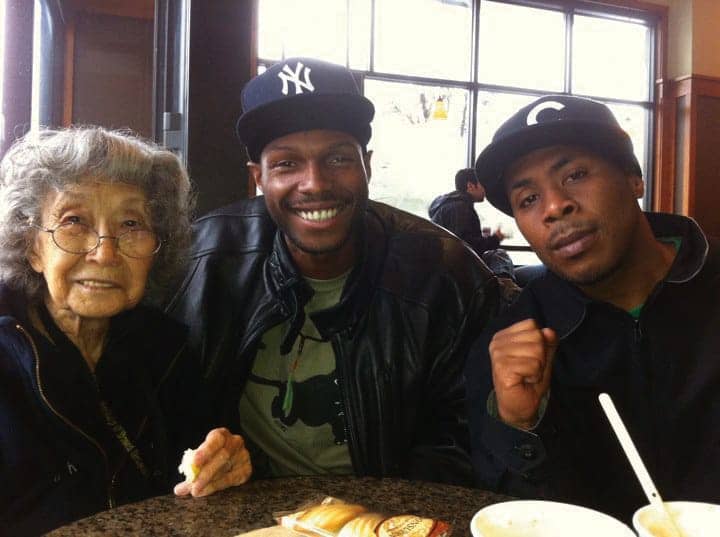
The deep voice then said, “This is Malcolm Shabazz, the grandson of Malcolm X.” I straightened out my attitude, and we both laughed. Young Malcolm told me on the phone that he wanted to come to the Bay to meet Rashida and me face to face and that he wanted to see what effect his grandfather had on the Black Revolution within the country, most notably on the Black Panther Party. Within 10 days of that conversation, Malcolm was on the ground in Oakland, California.
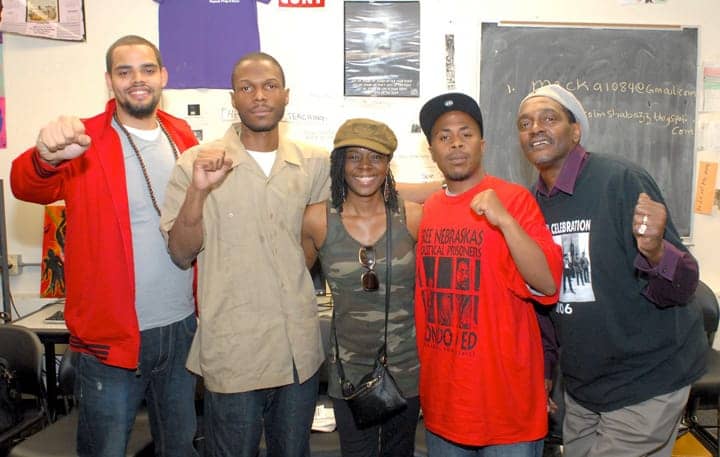
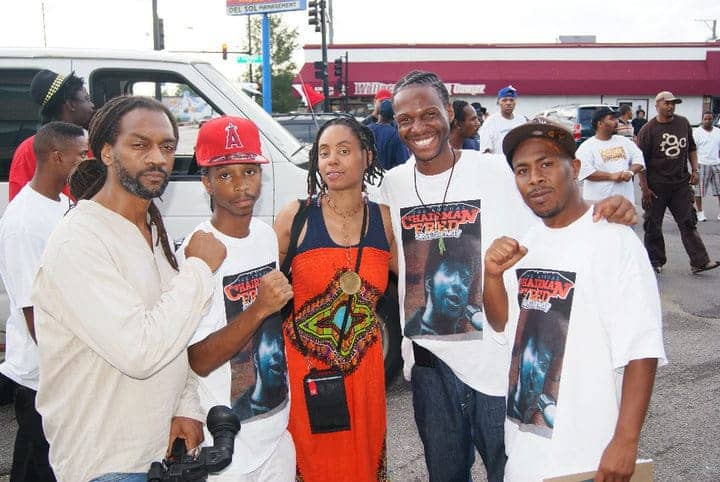
Malcolm was a little nervous, but the event went well and Malcolm was all smiles at the end. One of the highlights of the night for Malcolm was former Black Panther Ericka Huggins sharing a few words in private with him.
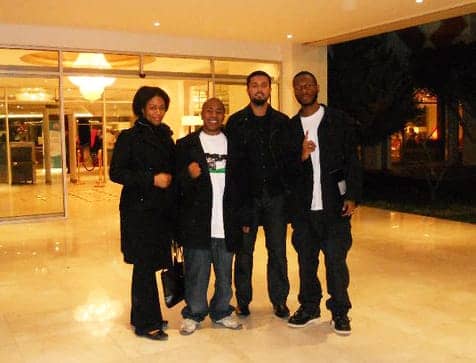
Out of all of those places, Philly was his favorite because he had a lot of fond memories of his time when he lived there. I met a family that he lived with when he was young there, and he was very protective of a teenage niece that he had in the area. He spoke at the office of the 178 Division of the Universal Negro Improvement Association-African Community League, an organization that his great grandparents were a part of.
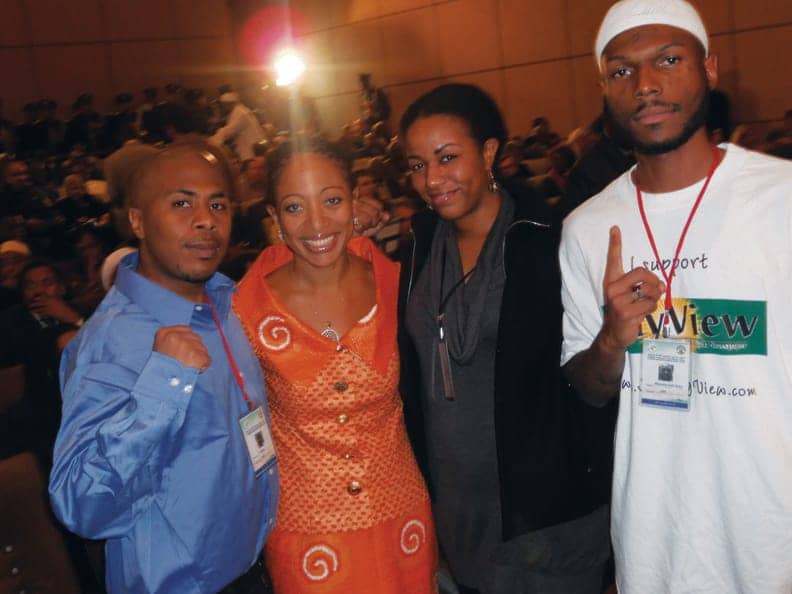
In New York, Malcolm was excited about his upcoming 26th birthday party at the New Rochelle Trump Towers, where he had family and friends coming from across the nation to attend. A day before, former members of the New York chapter of the Black Panther Party organized a small party and dinner in his honor. At the big party in New Rochelle, his mother, two of his aunts, and a number of friends and family came through to hang out with him on his birthday. One of the highlights of the night for Malcolm was that Prince Amir, the grandson of Chicago’s Chief Malik, aka Jeff Fort, came.
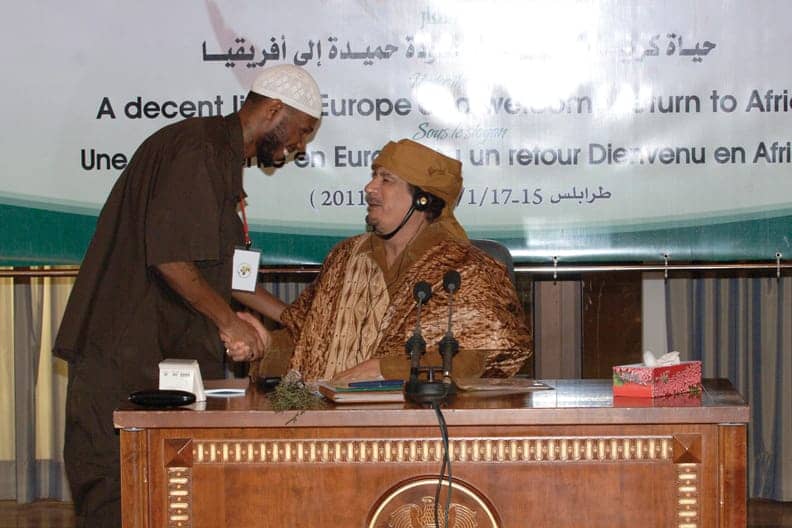
In D.C., Young Malcolm spoke at Sankofa Bookstore to a packed crowd of mostly Howard students. I remember when we got there, another group were in the middle of their event discussing the plight of Black people from Venezuela. He sat and listened and talked to the organizers after.
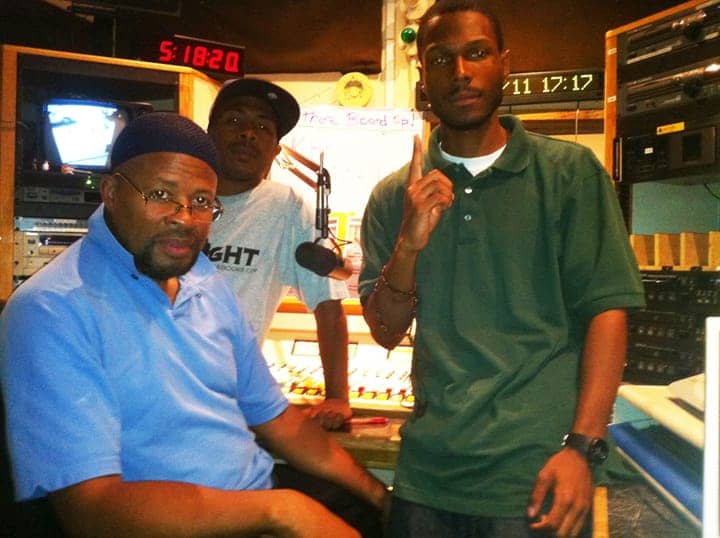
All of this happened on our first tour across the nation. Later on, on another East Coast tour, Young Malcolm and myself had the opportunity to visit political prisoner Sekou Odinga, where we sat with him for a few hours, and the most memorable thing that I remember Sekou talking about was that he wished that he had spent more of his time with his children instead of in the streets organizing. He said that maybe that would have allowed him to have a better relationship with one of his sons, Yafeu Fula, aka Kaddafi, from the rap group the Outlawz.
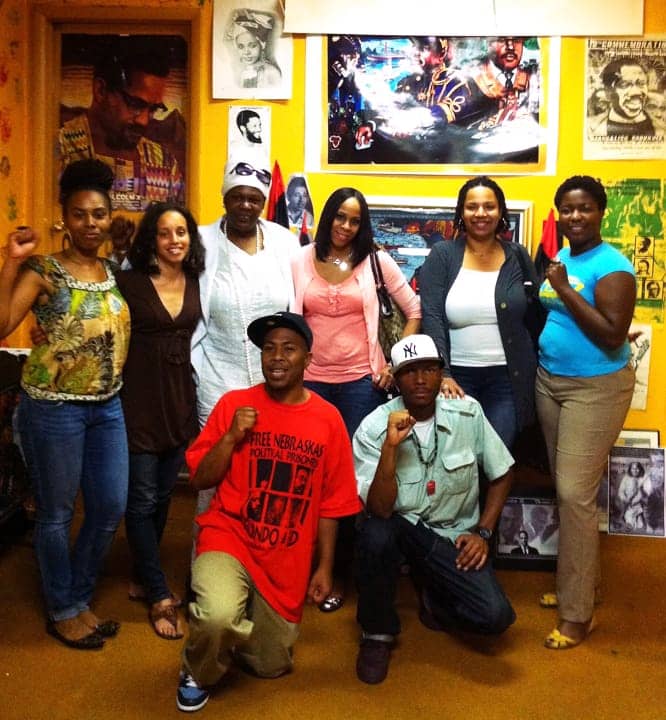
Many at the conference did not know that Malcolm was in attendance until Cynthia McKinney lost her voice on the trip and needed somebody to read some of her opening speech for a panel that she was hosting at the conference. After McKinney struggled with half, Malcolm volunteered to read the rest. Because there were many languages being spoken at the conference, there was a seven-second delay between the presenter’s speeches and the audience response. After the delay, the conference attendees gave Malcolm a two-minute standing ovation.
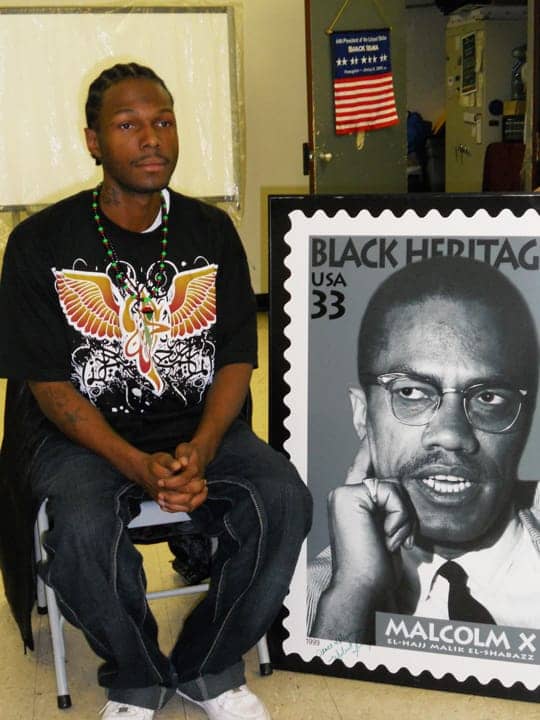
Young Malcolm promptly accepted the invitation. Nervously, we talked about what the speech should include since he had about 15 minutes to get it together. We brainstormed about the importance of his grandfather’s work in Africa and the effect of his grandfather’s travels on the perceptions of continental Africans and those born in the diaspora. During one of the opening speeches, it was announced that that particular day was the 50th anniversary of the assassination of the late great Pan Africanist Patrice Lumumba of the Congo. We knew that had to go into the speech since many of us, including Young Malcolm, learned about him first from the speeches of El Hajj Malik El Shabazz.
Young Malcolm was then called to the microphone to speak, while Muammar Qaddafi, aka “Brother Leader,” sat in the front nearby. I remember Malcolm walking up to greet him, and Qaddafi grabbed his hand with one hand and touched Malcolm’s face in disbelief with the other. They exchanged a few words and smiles, then Malcolm proceeded to do his thing.
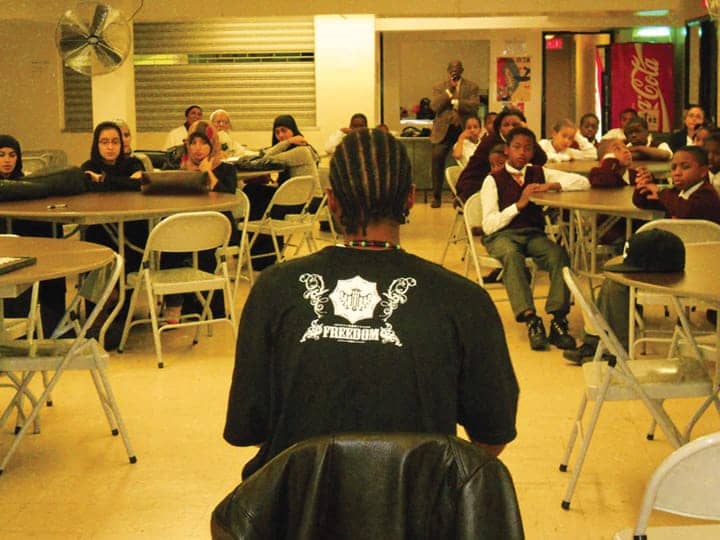
The whole auditorium was on its feet again, giving Malcolm a standing ovation. Some brothas and sistas just stood up and clapped while others were very vocal. A few presentations later, Qaddafi took the stage. He started his speech off in a barely audible humble tone. He was speaking in Arabic. It was translated for us by translators whom we could hear in our headphones.

Soon after, Young Malcolm was mobbed by a number of well-wishers. It reminded me of how Michael Jackson must’ve felt moving through the public. At first, people were grabbing at his clothes from every direction trying to get his attention. I helped Malcolm to calm the crowd down. Many of the people who wanted a photo or an autograph from Malcolm could not speak English, so we had to motion with our hands to communicate.
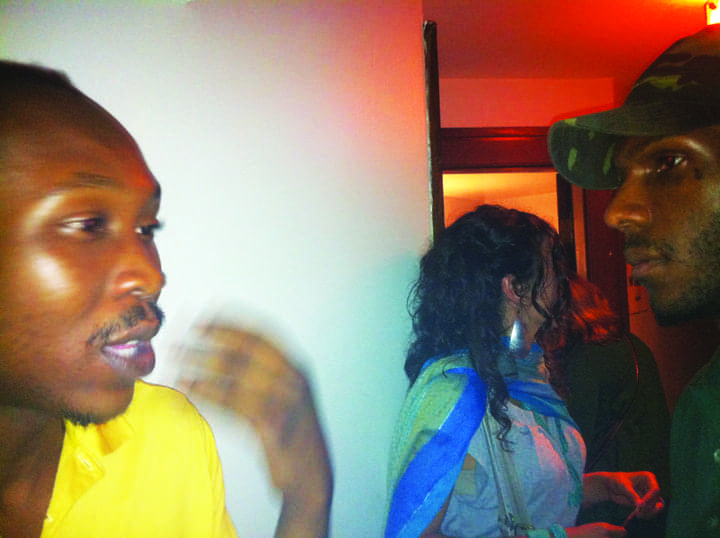
In the days before Malcolm made his speeches in Tripoli, he would be up all night in the lobby on the internet, with nobody talking to him except young male Libyans who were interested in Black culture in America and people from our delegation. After the speeches, Malcolm could not move 100 feet without people recognizing him and wanting his attention.
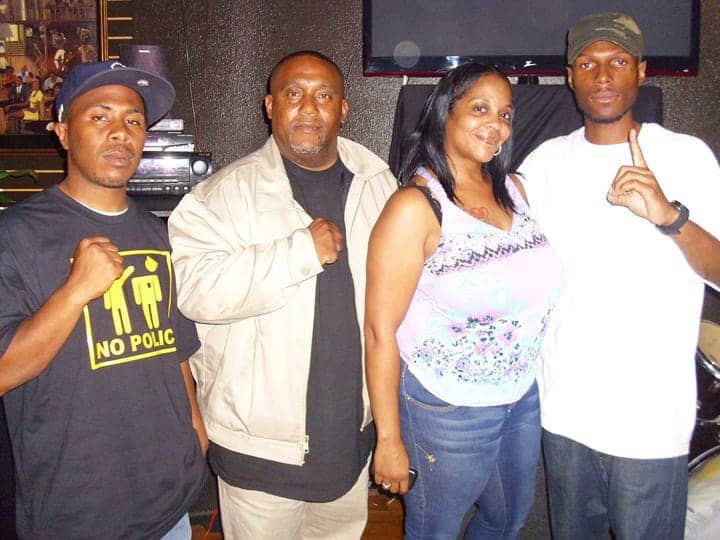
Unlike what many may think, he was not just living off of his grandfather’s name. He embraced his family legacy and at the same time understood it was on him to write the next chapter, which he did, fighting ignorance valiantly on behalf of our people.
In the spirit of young freedom fighters like Lil’ Bobby Hutton, Young Malcolm will live forever in the hearts and minds of oppressed people who want to be free, especially those incarcerated in jail cells and in Amerikkkan ghettos. We love you and we will never forget you. We will make sure that the young people of today and tomorrow use your life as an example to keep up the fight that so many have given their lives for over time. Long live Hajj Malcolm Latif Shabazz! May you rest in peace with the other warriors from our movement.
The People’s Minister of Information JR is associate editor of the Bay View, author of “Block Reportin’” and filmmaker of “Operation Small Axe” and “Block Reportin’ 101,” available, along with many more interviews, at www.blockreportradio.com. He also hosts two weekly shows on KPFA 94.1 FM and kpfa.org: The Morning Mix every Wednesday, 8-9 a.m., and The Block Report every other Friday night-Saturday morning, midnight-2 a.m. He can be reached at blockreportradio@gmail.com.




